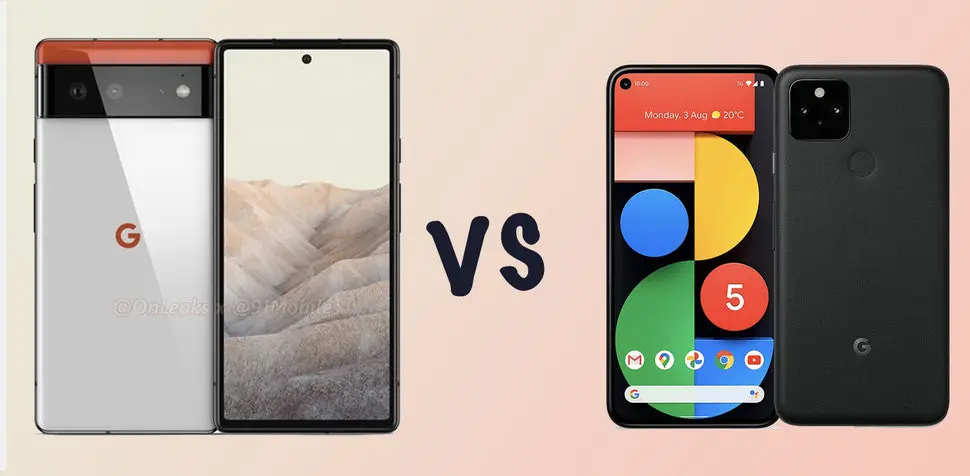
Android is one of the most common Operating Systems in mobile devices today, and over 80% of tablets and smartphones are powered by it. Android is an open-source system developed by Google and is found in many popular phone brands like Samsung, Oppo, and Lenovo.
All Android devices have the common software suite, Google Play Services, that enables users to link their Google accounts to various services provided by Google. However, we have seen an increase in the number of De-googled phones available for sale in recent years due to rising privacy concerns about Google’s intentions.
The Australian government permitted law enforcers to spy on criminals in late September 2021, a motion that allowed them to interrupt their citizen’s data. It is always welcome to have ideas that stop terrorism, but these ideas come at a cost. The aim of De-googled phones is to come equipped as fully private and secure devices.
De-googled phones are an excellent way to stay safe from this preinstalled bloatware (and spyware!) and ensure nobody can track your online activities. When you find Degoogled phones for sale you will find phones that are powerful, refurbished, and come with an open-source operating system with extra privacy protection and security.
Below we discuss everything you need to know about degoogled mobile phones.
How do De-googled Phones Work?

All Android devices depend on an application called Google Play Services which integrates your information with Google servers. However, users can regain their privacy by eliminating GPS from their gadgets.
Which are the Most Common Degoogle Operating Systems?

There are various degoogle operating systems today, as more people prefer them for security reasons. Microsoft tried its luck in the market but ended up withdrawing. There are also many Linux-based gadgets that have a limited capacity.
Open-sourced de-googled phones are becoming more popular, and the most common operating systems include the following;
1. GrapheneOS
The AOSP inspires GrapheneOS, an operating system derived from an Android operating system. This system’s goal is to give its users a fast, secure, and private mobile experience that does not depend on Google.
The main dissimilarity between GrapheneOS and other operating systems is it is centered on security. This system has the exact operating base as LineageOS but has unique features like a hardened web browser, among others.
Another key highlight of this operating system is it simplifies things for developers who wish to create applications for their phones; they can accomplish that without prior knowledge. GrapheneOS is one of the best security-enabled systems, with an ideal sun boxing made purposefully for privacy.
The main highlights of this system are;
- Provides security updates on time
- It uses its hardened malloc
- It is sold with complete disk encryption.
2. LineageOS
LineageOS was previously known as CyanogenMod, and it is a custom ROM designed for different Android devices. The ROM is developed over the AOSP and adds security, customization, and privacy. These features entail encryption, and this system’s main highlight is it is not limited to Google Pixel gadgets.
The LineageOS system has an additional privacy guard known as Trust, which keeps all the security features working perfectly, and avoids any compromises. The LineageOS system offers the most recent Security and Android patches to different devices.
3. CalyxOS
This is another popular ROM that is centered on the AOSP. This operating system has a robust firewall that enhances protection from scammers and facilitates secure messaging and end-to-end encryption for emails and texts.
Users can also install software easily to facilitate a secure connection over the internet without revealing their identities to big companies. The CalyxOS is more user-friendly but does not facilitate sandboxing.
4. e/OS
e/OS is a common degoogle operating system that emphasizes privacy and security. This system is based on an Android operating system and has a modular design to enable users to tailor it to their needs.
This operating system was created with security in mind and gives users total control over their phone privacy compared to other systems.
Which is the Best Operating System for De-googled Phones?
There have been tons of controversy regarding the e/OS system as the most ideal for de-googled phones because users are not required to unlock the bootloader. This means users are more vulnerable to attackers, as they cannot relock the system.
Remember, any CalyxOS, LineageOS, or e/OS gadgets must use a microG to get some Google capability. e/OS is a less secure option, and so is the LineageOS system. On the other hand, CalyxOS and GrapheneOS are more straightforward and realistic.
Graphene is developed on a refurbished Google pixel and gives users total control over their phone’s information.
How to Tell if Someone Is Spying on Your Phone

The mobile phone is one of the most innovative additions in the technological era. This tool comes in handy and stores critical information like pictures, emails, and messages.
Most gadgets today depend on the Android operating system that sends critical information to Google. There are also various cell-spying phones today, and below we discuss how to tell when your phone is being spied on.
A. Unusual Battery Drainage
Your phone battery drains much faster when you participate in resource-incentive activities like browsing, gaming, or streaming. As stated above, various spyware software is used today, and they use a lot of battery.
This means unusual battery drainage should signify someone is getting a hold of your sensitive information.
B. Suspicious Phone Noises
Spyware makes unusual noises whenever you are on a call, which should immediately call for an alarm. This means you should always be on the lookout for suspicious background noises, including echoes, beeps, and crackles, whenever you are on a call.
Most of these noises occur due to a bad network, but you should never take chances. Besides unusual phone noises, you should always look for excessive data usage. Remember, the software sends data from your phone to the hacker’s server, which takes up more data.
C. Slow Phone Performance
Another sign that your phone is under spy attacks is when its performance becomes slow. A slow response means someone is constantly accessing your information, and you can prevent this by not leaving your phone around strangers.
A random pop-up might indicate malware, and you should not click unknown links.
How to Improve Your Android Privacy

It is hard to quantify the value of your data, but you can rest assured that many government agencies and companies are trying to get a hold of your sensitive information. Google is centered around data and provides good software services that access and analyze your data to gain valuable insights.
It is challenging to eliminate this deal entirely, except by switching your smartphone completely. Below we discuss how to improve your phone’s privacy.
1. Secure It
This sounds like a no-brainer, but you should first begin by creating a lock to prevent people from accessing your data without your permission. The security part is found in your phone’s settings, and you can choose a pin, and password, among others.
It is advisable to use an alphanumeric password even though it is not the most convenient. Most people prefer fingerpaints, as they are the best balance between convenience and security.
2. Hide Sensitive Content and Notifications
Another critical step in safeguarding your gadget’s privacy is hiding all sensitive notifications and content. Here, you will only access the notifications after unlocking your phone, which is a deal-breaker in keeping your data safe.
3. Restrict App Permissions
Most applications ask for the user’s permissions, but you are advised against granting them. You should uninstall all apps that seek many permissions that do not relate to their core to keep your data safe.
Phone users can also Google the application’s name when in doubt to determine whether any previous user has raised security concerns.
4. Encrypt Data
Most phones have default data encryption, but users should always confirm that in the settings section. Data encryption is essential, as it stops third parties from accessing your data without your knowledge.
Besides data encryption, it is also advisable to use the Find my Device option to track your device when it gets stolen.
5. Get Rid of Automatic Backups
Most people prefer automatic backups in a bid to avoid losing critical files, but this move might share essential data with Google. Turning backups off is easy, but you often check your photos and videos to ensure they are backed up.
6. Use a Two-Factor-Authentication
Extra steps might seem tedious, but not with the two-factor authentication mode. This security feature double-checks the user’s identity before they can access a specific account, like emails. The most common type of two-factor authentication generates a code that is shared with your phone via text.
This code is for one-time use, and you can easily access your account after logging in. The two-factor authentication is additional work for you, but it makes it challenging for someone to access your data.
7. Turn Your Bluetooth and WI-FI Off
Hacking WI-FI and Bluetooth channels have become popular among hackers, who can access your important data. Hackers use Bluetooth channels to develop a malicious device that resembles a legitimate device and access your phone using it.
Phone users should cross-check the devices they connect to, especially during the first outing. Rooting and jailbreaking devices have numerous benefits, like improved battery life, but they also put your data at risk.
Jailbreaking your device makes it more vulnerable to hackers, thus putting your sensitive data at risk.
Common Alternatives to Android Systems

Undoubtedly, Android is the leading operating system after Windows, with millions of gadgets using it. Research has shown over 96% of gadgets depend on iOS and Android systems, but there have been shortcomings regarding their security.
Below we discuss other alternatives to the Android operating system.
A. Ubuntu OS
Ubuntu is among the most famous smartphone operating systems. The main highlight of the Ubuntu OS is its multi-touch gestures. This operating system has a user-friendly screen that enables users to multitask without going to the home screen.
B. Firefox OS
The Firefox operating system resembles the Google browser, and it hardly takes up much space in your gadget’s hardware. This explains why most organizations claim it is ideal for small devices with performance issues.
C. TizenOS
TizenOS is an ideal alternative to the Android operating system and resembles the Android platform. This OS is mainly common in China, which has made various manufacturers redesign their gadgets to incorporate it.
D. Windows Phone OS
Undoubtedly, Windows is a leader in the OS market, and it provides operating systems for laptops and desktops. The Windows OS was designed by Microsoft and is among the most common OS for smartphones.
Window phones have the latest iOS and Android features, enabling users to synchronize them with desktop data.
E. iOS
Undoubtedly, iOS is the leading Android alternative, as both their apps are compatible. Apple releases new iOS versions annually, which marks new features, making it the best option for Android OS.
Related: Student Gadget Guide: iOS vs. Android
F. KaiOS
KaiOS is classified among the top three OS globally and has the third-most users. This OS has remained competitive in the market since its release in 2017 and supports non-touch gadgets.
This OS is mainly used in simple phones, meaning they have a low energy consumption. It currently supports nearly thirty devices, most of which are unknown brands.
G. SirinOS
SirinOS is less common than Android and Apple, partly because it is still rising. SirinOS is among the fast-rising operating systems, mainly used by people not in cryptocurrency. SirinOS was developed by an Israeli entrepreneur for cryptocurrency purposes and has excellent features.
This operating system has a Token Conversion Service, allowing users to trade supported coins and tokens automatically. SirinOS is linked to Android through the app store, as it still does not have its app store.
H. HarmonyOS
HarmonyOS is one of the most recent additions to the OS market and is still undergoing development. This OS uses a microkernel version which means tighter security for users.
Final Thoughts On Privacy-Focused Mobile Devices
Degoogled phones are becoming more popular by the day. As people are on the lookout for their personal security as well as their digital security.
These privacy-focused mobile devices use alternative operating systems that have made a point to differentiate themselves from Apple, Google, and the rest of big tech. When it looks like a system is working for you instead of against you, that’s something I can always get behind. Check out Get Privacy Freedom.
Read Also:






